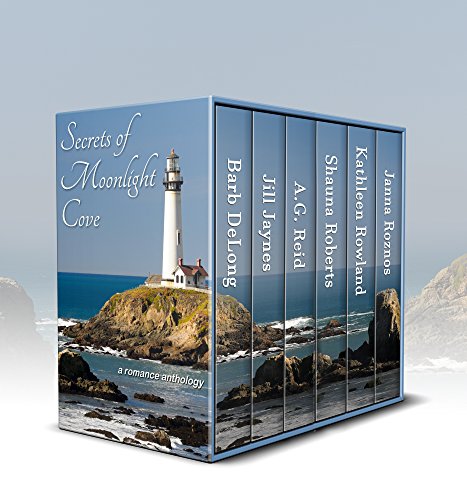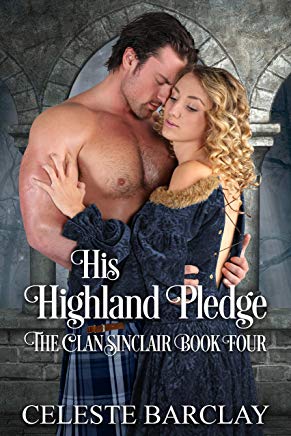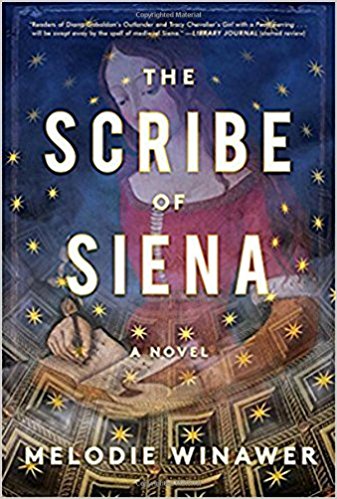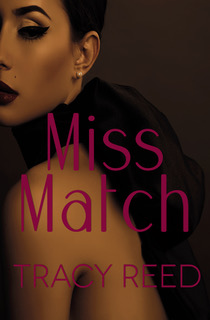Passing by
September 26, 2020 by Neetu Malik in category Poet's Day by Neetu Malik
Passing by
dusk casts its veil gently
as I walk along
this quiet street
under winged elms shedding
flaky white blossoms
at my feet
the hour is my own
no one here to nettle my peace
other walkers, far and few,
wave or smile occasionally
people come and people leave
I have learned to let them be
for on these intersecting trails
we’re passersby, you and I
© Neetu Malik
BOOK REVIEW: THREE TREATS TOO MANY: A Sarah Blair Mystery BY DEBRA H. GOLDSTEIN—A REVIEW BY VERONICA JORGE
September 22, 2020 by Veronica Jorge in category Write From the Heart by Veronica Jorge tagged as A Sarah Blair Mystery, Debra H Goldstein, Reviewed by Veronica Jorge by, Three Treats Too Many

(A Sarah Blair Mystery) Book 3 of a series
by Debra H. Goldstein
Kensington Publishing Corp. 2020
ISBN 978-1-4967-1949-2
Sarah Blair couldn’t be happier. Her life’s on track and now her twin sister Emily’s dream of owning her own restaurant, Southwind, has finally come true. Soon Emily will be able dazzle Wheaton, Alabama with her superb culinary skills. But she can’t open until the building inspector clears her and he seems to be dragging his feet. Meanwhile, the nightmare across the street, her rival’s restaurant, Jane’s Place, has just celebrated its grand opening and threatens to eclipse Emily’s restaurant even before it welcomes its first customer.
To make matters worse, patrons are raving about Jane’s Place where Riley Miller, heart breaker and sous chef, is whipping up delicious and healthy recipes to die for.
But when Riley turns up dead it’s up to Sarah, faithful sister and amateur sleuth, to find the killer.
If you’ve read Debra Goldstein’s previous books in the series, One Taste Too Many and Two Bites Too Many, you know that things are never what they seem, and the killer is not who you guess.
Think you’re good at following clues and figuring things out? Convinced you can beat Sarah to the punch? Then you need to read, Three Treats Too Many.
Psst! Don’t forget to try the recipes. They’re a real treat!
Veronica Jorge
See you next time on October 22nd!
The Sarah Blair Cozy Mystery Series
Read Rebecca Forster September Featured Author
September 21, 2020 by Rebecca Forster in category Featured Author of the Month tagged as Book Sales, Finn O'Brien Thrillers, Rebecca Forster, September Featured Author, thrillers
Read Rebecca Forster!
On September 15th, Rebecca announced she signed with Wolfpack Publishing. (Read about it here.) Good news for Rebecca, and good news for readers. Until September 30, 2020 Rebecca is have a sale on select titles.
On Sale Until September 30th: The Finn O’Brien Thriller Series
Also on Sale are Rebecca’s Single Title Thrillers

Rebecca marketed a world-class spa when it was still called a gym, did business in China before there were western toilettes at the Great Wall and mucked around with the sheep to find out exactly how her client’s fine wool clothing was manufactured. Then she wrote her first book and found her passion.
Now, over twenty-five books later, she is a USA Today and Amazon bestselling author and writes full-time, penning thrillers that explore the emotional impact of the justice system. She earned her B.A. at Loyola, Chicago and her MBA at Loyola, Los Angeles. Rebecca has taught the Business of Creativity at University of California Long Beach Writers Certificate Program, UCLA and UC Irvine extension. Married to a Los Angeles Superior Court judge, she is the mother of two grown sons and spends her free time traveling, sewing, and playing tennis.
Remember the books are only on sale until September 30, 2020
Rules of the Road by Jenny Jensen
September 19, 2020 by Jenny Jensen in category On writing . . . by Jenny Jensen, Writing
Rules of the Road
I enjoy driving, except for those time when some numptie ignores traffic rules. Whizzing through red lights, flying through stop signs, speeding, texting, ignoring yield signs all certainly disrupt the smooth flow of traffic, often catastrophically. We good drivers know that those who chose to ignore the rules are the bad drivers—or failed ones. While I have the choice to take defensive action in traffic and avoid most collisions I find I can’t defend against, avoid or ignore writers who chose to ignore the rules of grammar and punctuation. I’d rather just close the book or delete it.
I’m not a grisly grammarian or a pedantic pedagogue (redundant?) – really! It’s that I love our beautiful language and I love to read, to immerse myself in the lyrical flow of words well written and a story well told. I admit there have been times I wished I carried a big read marker so I could correct an egregious misuse. “Hunters please use caution when hunting pedestrians using walk trails” being one example that gave me really itchy fingers. I was laughing too hard to be incensed, though I did worry a bit about getting shot.

The rules of the written word are like the rules of the road, a map to smooth sailing. Correct punctuation guides the reader, unconsciously and effortlessly, to get where she wants to be; lost in the story. Commas tell the reader to take a breath, or make instant sense of a string of adjectives or a list. Commas are what show the meaning, cadence and flow of a character’s voice. A semi colon or an em-dash tells the reader to yield just a touch then get onto a related point. Quotation marks show who is speaking and for how long. An ellipses indicates a pause or shows that a thought has trailed off. A period brings our reader eye to a full stop.
The rules of grammar set the reader free of confusing nests of conflicting definitions. Does “Their on the way to the concert” mean ‘The goose/uncle/cockatoo belonging to the characters is headed to the concert and the object of the sentence just got left out? Or is the dialog meant to suggest there is the way to the concert, or did the writer intend a sensible contraction, they’re? Sneaky homophones.

I’m disappointed when an intriguing story is riddled with errors of grammar and punctuation. I really want to hear the tale but I’m forced to puzzle out meaning and narrative flow – even if it only takes an instant to understand, that instant is too long. It just isn’t necessary. The only time the rules of grammar and punctuation are unimportant is during the process of creating. Who cares if draft #1 is a grammarian’s nightmare? Or drafts #2 – 4 for that matter. What’s important at that stage is getting the story down, then making it work, then making it sing—no matter how many drafts it takes.
Once the story pleases the author there is no excuse to launch it into the world without a proper proofing. If a writer feels a full edit isn’t needed, that’s their choice but believe me when I say every published work should first be proofed. There are hundreds of editors—including myself—who offer that professional service at a reasonable price. A thorough proofing is worthy of the energy put into creating the book and respectful of the language and the reader.
Whew! A rant. Thanks for listening.
Eighteen and Eight by Larry L. Deibert
September 18, 2020 by marianne h donley in category Apples & Oranges by Marianne H. Donley, Writing
Eighteen and Eight
Since the Postal Service has been in the news recently, especially with the removal of high-speed sorting machines, I thought I would tell you all about the Jurassic days of casing all our mail by hand.
Before the Postal Service
Working at Mack Trucks was great. I made a good wage, only had to work Saturdays if I chose to do so, and after thirty or more years, I could collect a pension, including health care. I had a sedentary job for most of my thirteen and a half years, and only did physical work near the end of that short career, working on the line in Macungie.
First, I worked on the cab line where I put on door and window handles on the driver’s side, the aluminum step, and squirted sealant into the grommets and all open holes in the firewall, a not too difficult job, if one kept up, or even a little ahead.
My second job, after being bumped off my gussie, by a more senior employee, was to help another guy install the windshield of a cab, working above my head most of the time.
My third and final job, before being sent back to Allentown, was to install mufflers. I spent my working hours on a creeper under the truck as it moved down the line, picking up the muffler, bolting it to the frame, and then keeping it up by installing U-shaped hooks and attacking them to the frame. It was so tiring that most times I just laid on the creeper for my two six-minute breaks. Lunch was twelve minutes, and I would crawl out to eat my sandwich and drink a soda.
The Exam
I knew that I was going to lose my job soon, so I applied to take the exam to become a postal worker. Several weeks before the exam, I took a four-hour course where I learned the shortcuts I would need to ace the test.
Casing mail is all about speed and accuracy, and the exam tested one’s ability to perform this task. It was a two-part, eleven-minute test. Part one was about ninety-five questions, if memory serves. On the left side column was a list of addresses, on the right-side column was another list.
I had approximately three seconds to determine if the side by side addresses were exactly the same, or somewhat different. The most difficult part, after making my determination, was to completely blacken the answer circle with my number 2 pencil. That concluded the speed part of the test.
Part two dealt with memory and accuracy. There were five address blocks, with five different addresses in each block. On the test, you would see one specific address and had to answer which block it was in, A to E. I think we had eighty-eight questions in this section, and had to answer and mark your circle in about five seconds.
I scored ninety-six out of one hundred, plus was awarded an additional five points for being a veteran. Disabled veterans received ten additional points to their score.
The Job
I was hired and my first day on the job was December 16th, 1986. I was thirty-nine and a half years old, a rookie, when most employees my age were midway through their careers.
The next task I had to pass was my ninety-day probation period. My supervisor would judge my performances during the Post Office version of Basic Combat Training. As a recruit in BCT, I was fat, and out of shape, and now I was also old.
Most of my days were spent delivering routes. A carrier would case the route, pull it down, and I would grab the loaded satchel, and either be transported or walk to my first delivery point. Generally, when a professional carrier cased the route, there were few errors, and having to be quick, when we delivered, we rarely had time to check to see if we were delivering the correct mail. As long as we delivered to the correct address, we rarely got into any trouble.
The accepted method of handing the mail was to rest the flats, which were large pieces of mail and magazine sized mail, in the crook of your arm, and hold a bundle of letter-sized mail in your hand. Using your free hand, you would peel letters for a specific address off the pile, and then peel of the corresponding flats, collating both piles together to deliver to the mailbox, or slip through the door slot.
Casing the Mail
Finally, I was given the opportunity to case mail, so before leaving work the day before, I walked to the route to check out the case. A mailman’s case consisted of two or three five row metal boxes with every address, or two addresses in a section, marked off on the case and split up by metal separators.
The job at hand was to grab a handful of letters and begin sorting them into the proper divider, your eyes and hands moving all around the case until you would finally recognize where to put the mail piece from memory. It was sort of like the game Concentration.
After casing the letter mail you were going to take out, you would pick up a handful of flats and rest them on your arm. The flat case was a series of cubicles with multiple address labels—remember the test—where you would throw the flats into the proper bin, and then when finished you would have to sort them into delivery order on your desk.
Eighteen and Eight
Doing the job properly, and speedily, the speed that was required was eighteen letter pieces a minute, and eight flats. I think I used to case close to thirty letters and fifteen flats a minute once I got the hang of it.
Today’s mail sorters now ‘case’ about thirty-five thousand pieces an hour, and in delivery order. I had been retired once they began using flat sorting machines, and I know literally nothing about them.
Note: If you want to learn more about Larry, read his interview A Time Traveling Man
Larry L. Deibert’s Books
Affiliate Links
A Slice of Orange is an affiliate with some of the booksellers listed on this website, including Barnes & Nobel, Books A Million, iBooks, Kobo, and Smashwords. This means A Slice of Orange may earn a small advertising fee from sales made through the links used on this website. There are reminders of these affiliate links on the pages for individual books.
Search A Slice of Orange
Find a Column
Archives
Featured Books
SECRETS OF MOONLIGHT COVE: A Romance Anthology
Moonlight Cove, where everyone has a secret…
More info →ALASKA INFERNO
Can a series of wildfires lead to true love under a midnight sun?
More info →THE SCRIBE OF SIENA
The captivating story of a brilliant woman's passionate affair with a time and a place . . .
More info →MISS MATCH
What happens when the matchmaker inadvertently gets matched while matching someone else?
More info →Newsletter
Contributing Authors
Search A Slice of Orange
Find a Column
Archives
Authors in the Bookstore
- A. E. Decker
- A. J. Scudiere
- A.J. Sidransky
- Abby Collette
- Alanna Lucus
- Albert Marrin
- Alice Duncan
- Alina K. Field
- Alison Green Myers
- Andi Lawrencovna
- Andrew C Raiford
- Angela Pryce
- Aviva Vaughn
- Barbara Ankrum
- Bethlehem Writers Group, LLC
- Carol L. Wright
- Celeste Barclay
- Christina Alexandra
- Christopher D. Ochs
- Claire Davon
- Claire Naden
- Courtnee Turner Hoyle
- Courtney Annicchiarico
- D. Lieber
- Daniel V. Meier Jr.
- Debra Dixon
- Debra H. Goldstein
- Debra Holland
- Dee Ann Palmer
- Denise M. Colby
- Diane Benefiel
- Diane Sismour
- Dianna Sinovic
- DT Krippene
- E.B. Dawson
- Emilie Dallaire
- Emily Brightwell
- Emily PW Murphy
- Fae Rowen
- Faith L. Justice
- Frances Amati
- Geralyn Corcillo
- Glynnis Campbell
- Greg Jolley
- H. O. Charles
- Jaclyn Roché
- Jacqueline Diamond
- Janet Lynn and Will Zeilinger
- Jaya Mehta
- Jeff Baird
- Jenna Barwin
- Jenne Kern
- Jennifer D. Bokal
- Jennifer Lyon
- Jerome W. McFadden
- Jill Piscitello
- Jina Bacarr
- Jo A. Hiestand
- Jodi Bogert
- Jolina Petersheim
- Jonathan Maberry
- Joy Allyson
- Judy Duarte
- Justin Murphy
- Justine Davis
- Kat Martin
- Kidd Wadsworth
- Kitty Bucholtz
- Kristy Tate
- Larry Deibert
- Larry Hamilton
- Laura Drake
- Laurie Stevens
- Leslie Knowles
- Li-Ying Lundquist
- Linda Carroll-Bradd
- Linda Lappin
- Linda McLaughlin
- Linda O. Johnston
- Lisa Preston
- Lolo Paige
- Loran Holt
- Lynette M. Burrows
- Lyssa Kay Adams
- Madeline Ash
- Margarita Engle
- Marguerite Quantaine
- Marianne H. Donley
- Mary Castillo
- Maureen Klovers
- Megan Haskell
- Melanie Waterbury
- Melisa Rivero
- Melissa Chambers
- Melodie Winawer
- Meriam Wilhelm
- Mikel J. Wilson
- Mindy Neff
- Monica McCabe
- Nancy Brashear
- Neetu Malik
- Nikki Prince
- Once Upon Anthologies
- Paula Gail Benson
- Penny Reid
- Peter Barbour
- Priscilla Oliveras
- R. H. Kohno
- Rachel Hailey
- Ralph Hieb
- Ramcy Diek
- Ransom Stephens
- Rebecca Forster
- Renae Wrich
- Roxy Matthews
- Ryder Hunte Clancy
- Sally Paradysz
- Sheila Colón-Bagley
- Simone de Muñoz
- Sophie Barnes
- Susan Kaye Quinn
- Susan Lynn Meyer
- Susan Squires
- T. D. Fox
- Tara C. Allred
- Tara Lain
- Tari Lynn Jewett
- Terri Osburn
- Tracy Reed
- Vera Jane Cook
- Vicki Crum
- Writing Something Romantic
Affiliate Links
A Slice of Orange is an affiliate with some of the booksellers listed on this website, including Barnes & Nobel, Books A Million, iBooks, Kobo, and Smashwords. This means A Slice of Orange may earn a small advertising fee from sales made through the links used on this website. There are reminders of these affiliate links on the pages for individual books.















































































